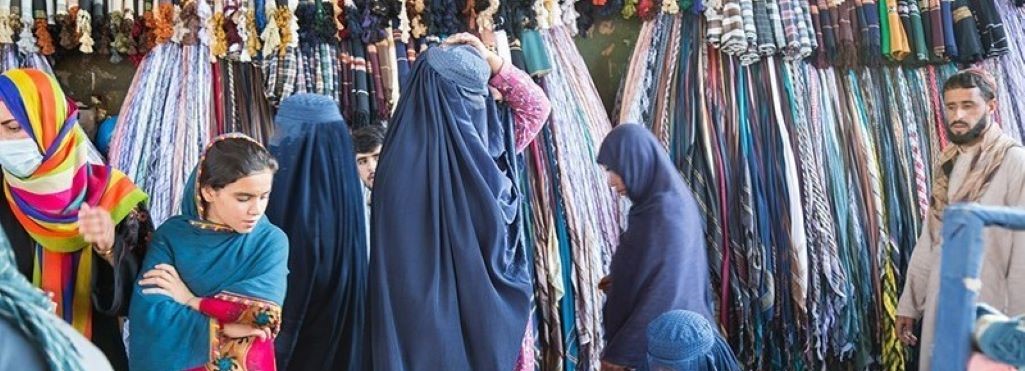Washington, DC — 25 July 2025
For more than two decades, foreign aid has been a cornerstone of humanitarian and development assistance in Afghanistan. Following decades of war, political instability, and economic collapse, the country now faces a severe shortage of humanitarian resources. This is not merely a logistical or political challenge—it is a life-and-death crisis affecting millions. The absence of sufficient food, medical supplies, shelter, and international support is intensifying suffering and pushing Afghanistan into deeper destitution.
A Crisis Deepened by Political Shifts
The Taliban’s return to power in August 2021 marked a dramatic shift in Afghanistan’s relationship with the international community. Many aid organizations were forced to scale back operations due to security concerns, sanctions, and restrictions imposed by the new regime, particularly those targeting the rights of women and girls.
Critical support systems are evaporating. Funding cuts from foreign donors, who previously sustained basic services, have compounded the crisis. Nearly half of Afghanistan’s foreign aid came from the United States Agency for International Development (USAID), which ceased operations in January 2025.
Humanitarian Needs
Afghanistan remains one of the world’s most severe humanitarian crises, with over 29 million people—more than two-thirds of the population—requiring assistance. Food insecurity, lack of clean water, limited healthcare, displacement, the erosion of educational infrastructure, and widespread unemployment contribute to immense human suffering.
According to the World Food Programme, millions face acute food insecurity, particularly rural populations and children. Malnutrition has surged, with alarming rates of stunted growth and wasting among children under five. Limited aid means fewer food distributions and minimal support for families already struggling with rising costs.
Collapsing Healthcare Systems
The healthcare sector, heavily dependent on international aid, is nearing collapse. Hospitals and clinics are understaffed, under-resourced, and unable to meet basic needs. Vaccination rates have plummeted, maternal and child mortality are rising, and outbreaks of preventable diseases—including measles and cholera—are increasing. Restrictions on women’s employment, particularly in healthcare, have further limited access to medical care.
Displacement and Shelter Insecurity
Ongoing conflict, natural disasters, and economic collapse have displaced millions. Many live in temporary shelters or open-air settlements without clean water, sanitation, or protection from harsh weather. Winter conditions in Afghanistan can be deadly, and without adequate clothing, fuel, or secure housing, displaced families face extreme survival risks.
Impact on Women and Girls
Afghan women and girls have been disproportionately affected. Restrictions on female education and employment have limited access to public life, mobility, and services. Female-headed households, often excluded from aid channels, face extreme poverty. Gains in gender equity supported by USAID—such as women-led NGOs, entrepreneurship programs, and educational initiatives—are rapidly eroding.
The Role of the International Community
While some aid continues to trickle in, it is insufficient. Political considerations, donor fatigue, and Taliban interference limit both funding and delivery. Humanitarian assistance must be principled, needs-based, and depoliticized. Governments and international organizations must prioritize safe and effective aid delivery, supporting local NGOs and sustainable, community-led solutions.
Thinking Out Loud
On Wednesday evening, while preparing this piece, I watched a CNN segment by Isobel Yeung showing the death of an infant from hunger and meningitis—a direct consequence of aid withdrawal. Statements like Secretary Marco Rubio’s claim that no one died due to USAID’s closure fail to reflect the reality on the ground.
Rep. Tim Burchett’s comment that “they have to work it out on their own” raises the question: how, after two decades of occupation and US withdrawal, is this feasible? Meanwhile, the recently enacted federal budget he supported increases the deficit by $3.4 trillion while cutting $1.4 trillion in programs assisting Americans, including in his own district—calling into question whose welfare is truly prioritized.
The closure of aid programs demonstrates a critical global failure. The Afghan population should not be punished for the actions of their rulers. Humanitarian need transcends borders; immediate and sustained international attention is essential.
Afghanistan’s crisis is not only a national tragedy—it is a global failure of empathy and coordination. Its people deserve more than survival—they deserve dignity, opportunity, and the global solidarity necessary to rebuild their future.
Photo Credit: Daily life in Afghanistan by Prachatal. Licensed under CC BY NC ND 2.0 – Taken in Kabul, 19 September 2021.
Author’s Note: If you found this article important, please consider sharing it or supporting organizations providing aid to Afghanistan’s civilians. Their survival depends on international action.
Lara Kajs is the founder and executive director of The Genocide Report, an educational nonprofit based in Washington, DC., advancing atrocity prevention and international law. She is the author of several field-based books that draw on extensive experience in conflict and displacement settings, including Yemen, Syria, and Afghanistan. Her writing and speaking focus on atrocity crimes, forced displacement, state violence, and international humanitarian law.

